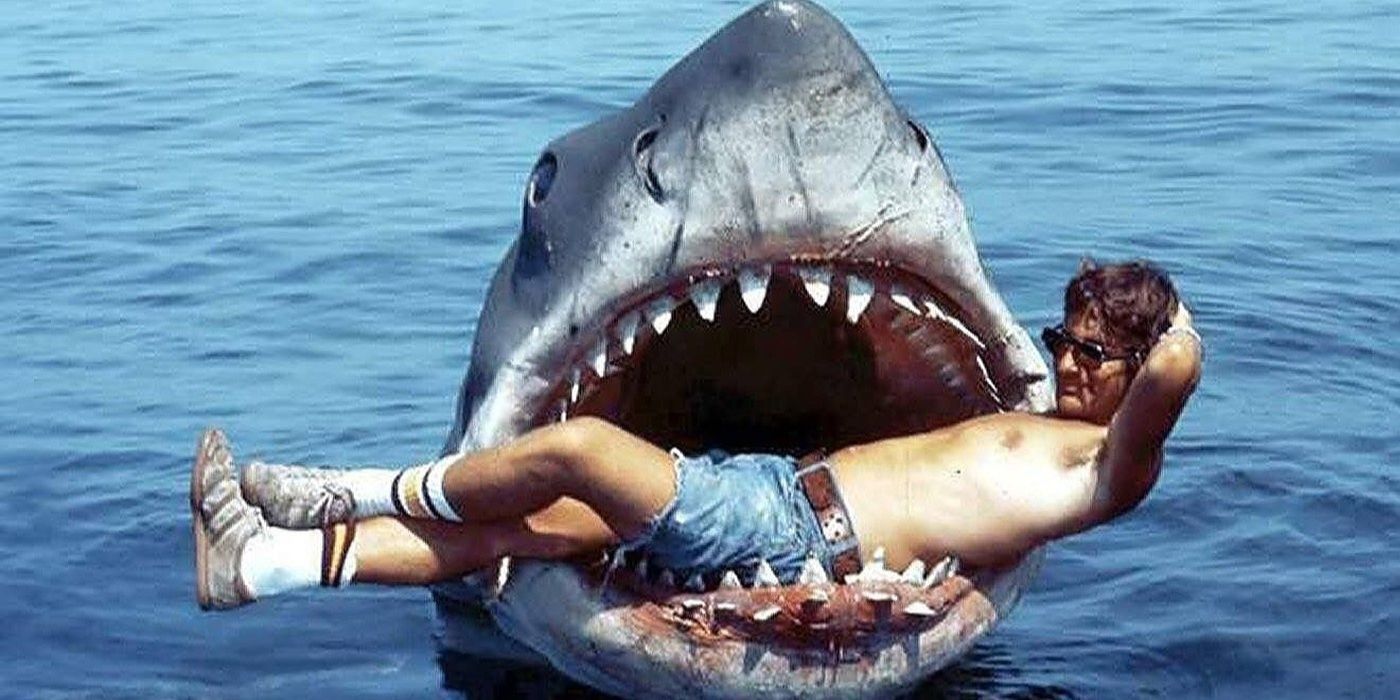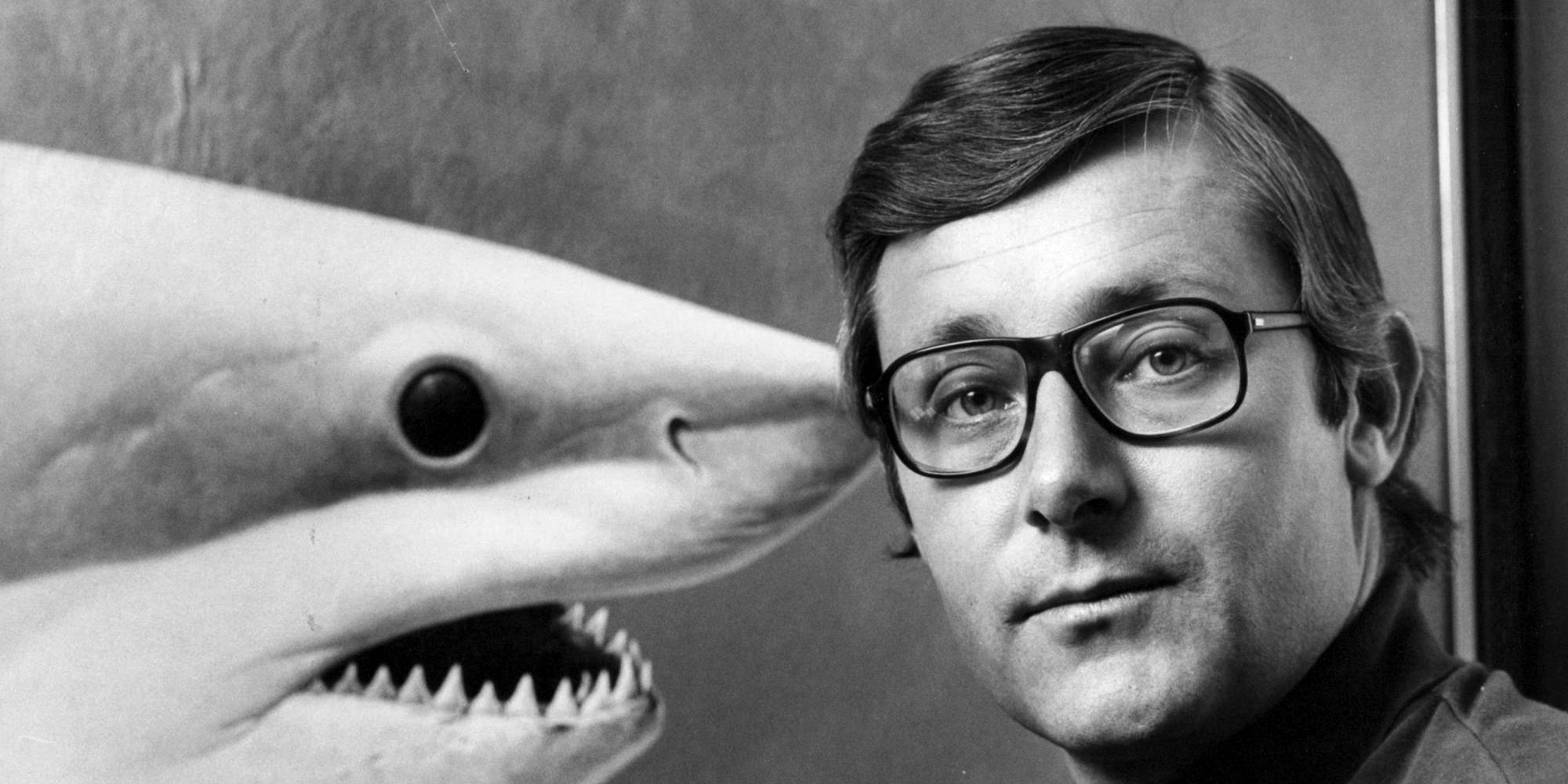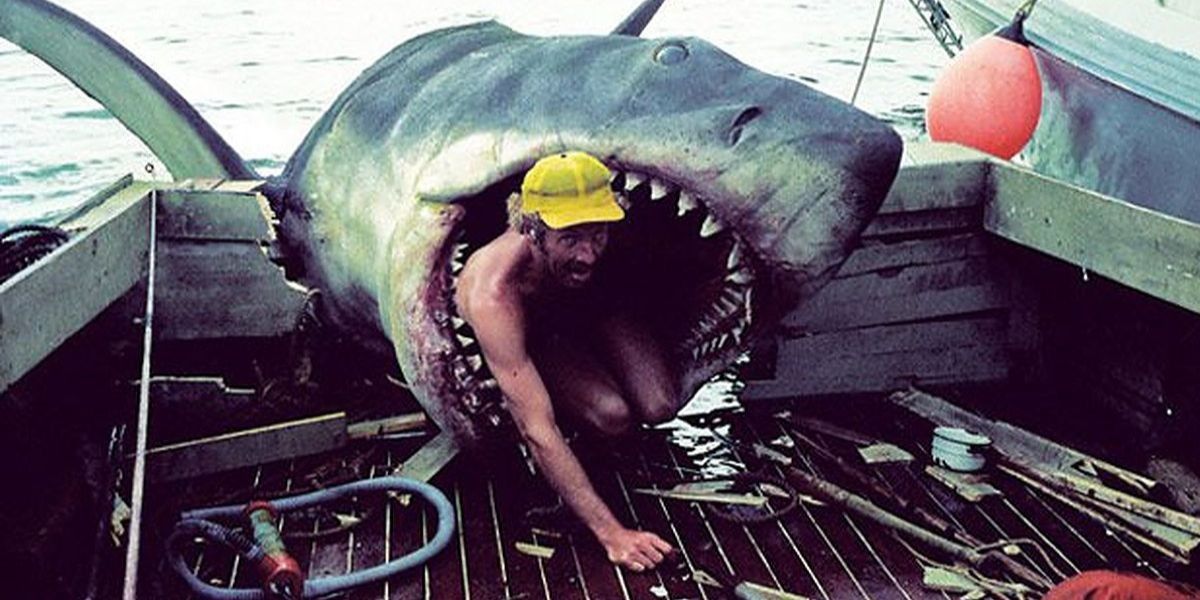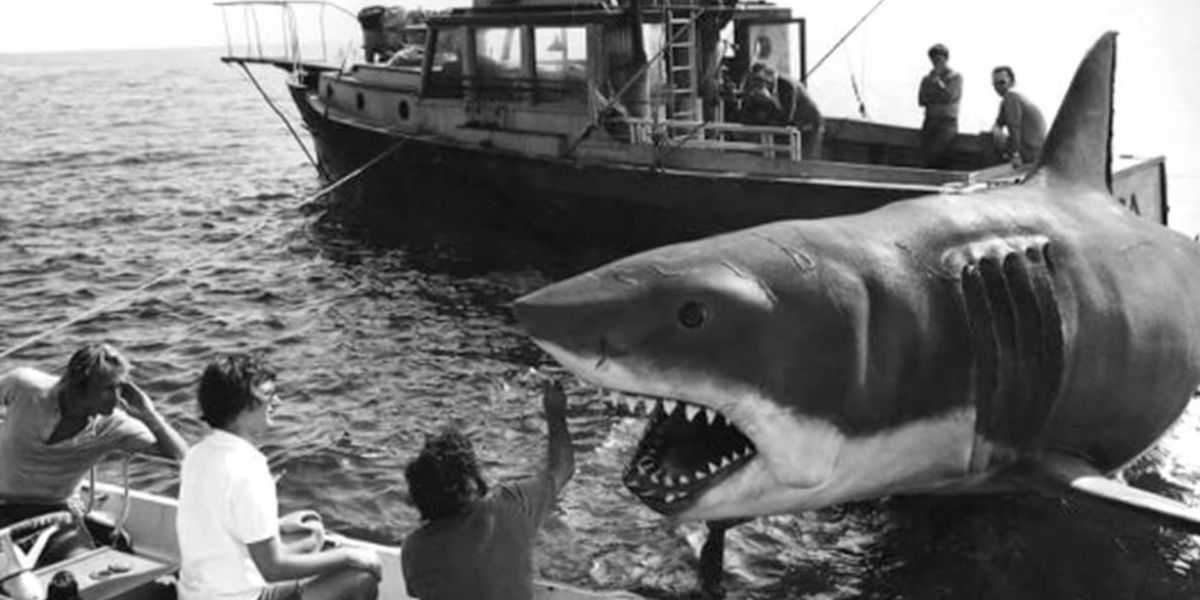When future Jaws author, Peter Benchley, walked into a book publishers’ office in 1971, he had two pitches left before quitting as a writer. One of them, an idea born from his childhood fascination with sharks, hooked the publishers. What he didn’t know then was the indelible scar it would leave on his heart and our history, forever. Jaws helped unleash a wave of destructive terror death upon sharks that couldn’t rival half a billion years of evolution.
Jaws changed more than the movies. It helped usher in a new mainstream fascination while fueling fear and disdain for a magnificent and fatally misunderstood animal. The reason why is complicated, and in many ways, it began before Jaws.
45 years ago the first true summer blockbuster gobbled the world's attention, immediately becoming the biggest movie of all time. Peter Benchley’s novel, Jaws, hit shelves barely a year earlier, solidifying it as a best seller for months. When the paperback landed soon after, over five million more copies more were sold. At the time, fear was already building. But the mind movies of flashlight readers did little to prepare for the raw realism soon brought to life.
It was the visionary power of little known director Steven Spielberg that captured so vividly the terrors of Benchley’s imagination. Spielberg brought Jaws to life, but it was master composer Sir John Williams who gave it feeling. His imposing theme orchestrated an unparalleled sense of dread and fear. It ensured Spielberg delivered a masterstroke of psychological warfare on moviegoers.
Fear, left unchecked, inflates like a balloon. Aided by a powerful, haunting theme fueling the viewer’s primal fears, we barely notice the shark only appears an hour into the film. Audiences had already created the monster in their minds, the movie validated it -- and the impression never left. Jaws aided the rapid expanse of fishy fables about great whites that pushed audiences farther from reality.
The mob mentality of fear and hate was quickly enshrined. Few left the movie feeling bad that the shark exploded on screen, especially after watching Jaws eat a child. So why did Peter Benchley famously proclaim later in life, “Knowing what I know now, I could never write that book today?” Well, let’s check the numbers.
The movie ushered in an immediate gold rush of sport shark fishing on a cataclysmic scale. It exploded the instant theatres emptied. Millions of sharks were wrangled out of east coast waters for sport, in a fishing frenzy that decimated populations. It also fueled commercial shark fishing, encouraged by the US government until the end of the 1980s. The damage inflicted remains, with some Atlantic shark populations still down over 80 percent. With commercial fishing, not sport anglers mainly to blame, where does the movie fit into that equation?
Misguided fear and anxiety about sharks helped extinguish any outcry against the industrial harvesting of an ugly creature. Sharks aren’t cuddly and offer little emotional value to the mainstream. That lack of empathy still proves a death sentence for these essential apex predators to our global ecosystem. The scalability of the ignored horror against sharks is what is so gripping. How else can more than 100 million sharks still end up finned for soup and medicine?
Sharks have been growing as fearsome figures in America since a killer shark terrorized New Jersey almost 100 years ago. Benchley grew up hearing stories about that summer of 1916, fueling his boyhood shark obsession while fishing with his dad. As an adult, he caught wind of the exploits of Frank Mundus. The Long Island fisherman was legendary for his battles with big sharks. With him in mind, Benchley found his inspiration for Captain Quint.
But Benchley’s vision really came into focus after 1971’s landmark documentary film, Blue Water, White Death. It displayed first of its kind footage of great white sharks at their most terrifying. The footage captivated audiences -- both Benchley and Spielberg alike. But the amazing video wasn’t enough to fill the knowledge gaps about sharks. A trail of disinformation that inadvertently helped lead to the pages of Benchley’s book. Which, fun fact, only got its title, Jaws, barely 20 minutes before being published. Thankfully, just like the day Jaws hit the press, time hasn’t fully run out on sharks.
Much has been done in recent years to turn the tide, as it were, and help dwindling shark stocks recover. Sportfishing has turned away from large-scale catch and release or killing for sport. It's still popular in some parts of North America, and much of the world, but nothing like it was. However, a grotesque amount of commercial harvesting, both legal and illegal, continues in many areas, despite rising opposition.
Even now, it still feels hard to convey the sheer magnitude of this continual tragedy, on such an epic scale. It’s a life or death battle, lasting decades, impacting one of the earth’s oldest and most magnificent specimens. It almost seems like the kind of thing that would be great material for a summer blockbuster.




